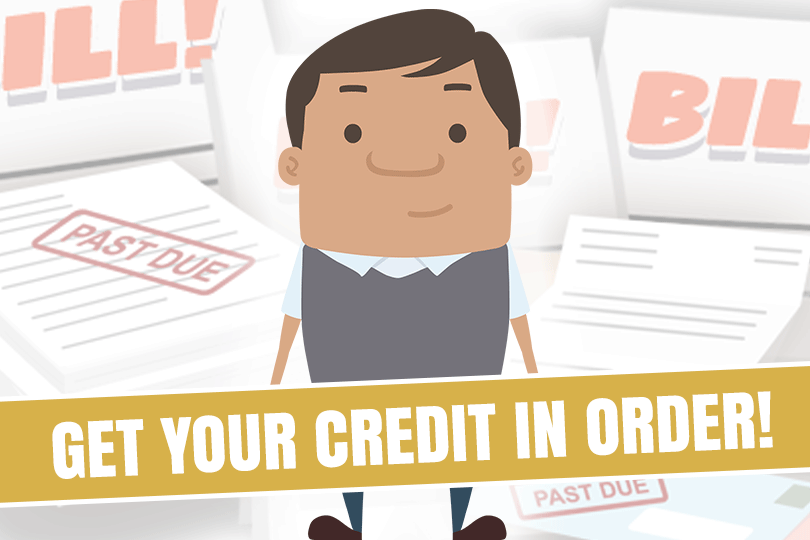When Should I Get Approved for a Home Loan?
January 31, 2022
WHAT IS A PREAPPROVAL
A mortgage pre-approval starts with an examination of your finances. It is when a lender uses a potential borrower’s financial information, credit score, debt-to-income comparison, employment history, and other critical information to determine whether or not to loan them a specific amount of money. When applying for a pre-approval with a lender, you will know exactly how much you can borrow to buy a home and at what interest rate. Depending on your lender, you may be able to lock in the interest rate for when your final mortgage application gets approved.
THE PREAPPROVAL PROCESS
To start the pre-approval process, you will need to file an application with a lender. The application typically has eight sections that cover a number of different details.
- Loan type and terms
- Information about the property and purposed of the loan
- Applicant’s information (name, date of birth, social security number, etc)
- Employment information
- Monthly income and housing expenses
- Assets and Liabilities
- Details of Transaction
- Declarations
WHEN TO GET YOUR MORTGAGE PREAPPROVAL LETTER
The pre-approval for a home loan is typically valid for 60 to 90 days. The time limit is set by mortgage lenders because your finances and credit standing can change. You have until the set expiration date to finalize the loan with the terms outlined in the Loan Estimate. If your pre-approval expires, you will need to submit a new application with updated documentation.
Having a preapproval letter ready when you are shopping for a house gives homebuyers an advantage. The official document shows sellers that you are a serious buyer and are financially able to follow through on your offer. Sellers are more likely to negotiate on the price with buyers who are pre-approved for a mortgage, and most of the time, they choose not to entertain offers from buyers without the preapproval letter.
PRE-QUALIFICATION VS. PREAPPROVAL
While both terms are used interchangeably, it is important that you as a borrower know the difference between pre-qualifying and being pre-approved for a mortgage.
To pre-qualify for a loan, you must provide an overview of your finances, income, and debts to a lender, who then determines an amount they are likely to loan to you. That is why pre-qualifying for a loan is a useful way to estimate what kind of home you can afford.
On the other hand, the lender takes a much more in-depth look at your finances during the preapproval process, since it includes a credit check and a look at actual documentation, such as bank statements, pay stubs, tax returns, W-2 statements, etc. Consequently, the preapproval letter holds more weight when it comes to placing an offer on a home, since there is a hard inquiry into your credit, and lenders have taken the time to verify you as an eligible borrower.
Remember that a pre-approval does NOT guarantee you a loan. Your preapproval letter is contingent on whether or not the financial and employment information you provided is consistent before your loan closes. Buying a home is a big decision, and it is in your best interest to go in to it prepared with a pre-approval, so talk to your lender about your next steps on getting pre-approved!
------------------------------
RELATED VIDEOS:
Home Equity Can Secure Your Second Mortgage
Consider the Advantages of Discount Points
FHA Limits are Calculated and Updated Annually

FHA Loan Articles
November 21, 2024The dream of homeownership is with some from a young age. But in an uncertain housing market, some grapple with the question: Is buying a home the right move for me?
While renting offers relocation flexibility and lower upfront costs, homeownership provides a wealth of financial and personal benefits.
November 20, 2024Refinancing your mortgage offers a way to cash in on your home equity, potentially reduce your interest rate, or modify your loan term. Borrowers ready to consider have options including FHA loans and conventional loans.
While both provide avenues for refinancing, each loan type may be best for specific needs and financial circumstances. What are the differences between FHA and conventional refinance options?
November 14, 2024The home you want to buy might seem perfect, or it may have a few flaws that are acceptable in the grand scheme of things. But what about issues you can’t spot just by walking through the property a few times? A home inspection provides an unbiased, expert assessment of the property's condition, uncovering potential issues that might not be noticeable to the untrained observer.
November 12, 2024Escrow is an important feature of most typical FHA loans. An escrow account is a third-party account where borrowers deposit funds designated for property taxes and other uses. Requirements to use escrow accounts typically stems from a need to protect all parties involved in the transaction
November 2, 2024When it’s time to consider buying a home, the Federal Housing Administration (FHA) offers two popular options. One is the traditional FHA purchase loan many use to buy a house in the suburbs. But not everyone wants to buy an existing property. Some want more control over the design and configuration of the home.
The other FHA construction loan option, the one-time close mortgage, comes in here. This option is for those who want to approve floor plans, have a say in the types of materials used to build the home and choose its features.







